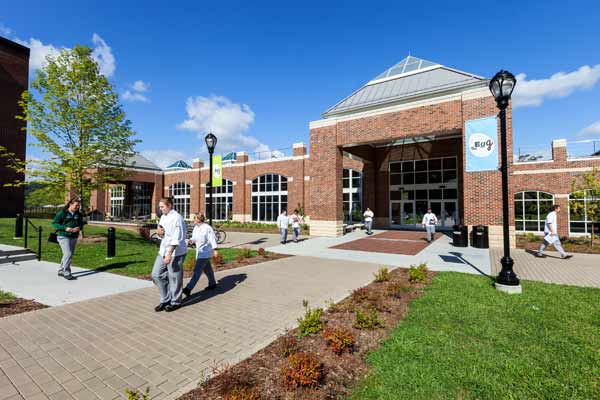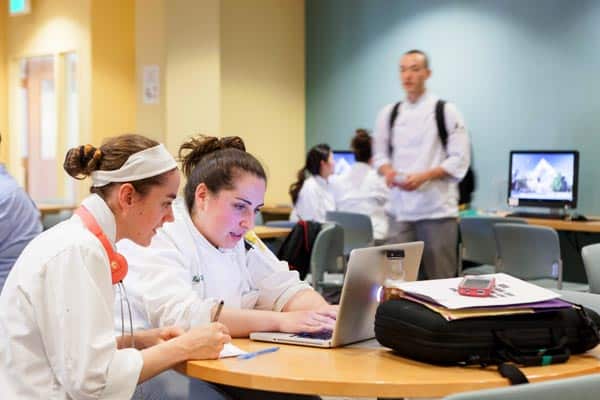How to Choose the Best Culinary College
Which is the Best Culinary School for You?
Before you make this all-important decision, we encourage you to visit websites of different colleges and request viewbooks and catalogs to learn about their programs and resources. Then make an informed choice using the criteria below.

1. Accredited, Not-for-Profit College
Is the college not-for-profit, so that all of its resources go toward its education mission? Also, is the college fully accredited by a respected commission of higher education, validating the quality of its education and setting high standards of excellence to follow?

2. Hands-on and General Education Learning
Top culinary colleges have an ideal mix of experiential and classroom learning. Look for student-staffed restaurants on campus; internships at leading companies; food-focused academic courses; and relevant curricula guided by collaborations with industry and education partners.

3. Flexibility in Completing Your Degree
Does a college give you the flexibility to customize your education to your career goals? Can you transfer credits, and/or join an accelerated program? Are there master’s degree options? Does the education prepare you for the food world—and for life?

4. Expert Faculty from the Industry
The best culinary colleges have a diverse and accomplished faculty, from master chefs and bakers to published authors to seasoned professors in business and liberal arts. Also key: student-to-faculty ratios that foster individual mentoring.

5. Culinary College in a Campus Environment
The most inspiring colleges offer a full campus experience with a diverse community, a variety of clubs and activities, attractive housing options, and fun student life. A great bonus: access to a major city for even more cultural and culinary adventures.
CIA Checks All the Boxes
![]() It’s a not-for-profit college fully accredited by the Middle States Commission on Higher Education, as well as the California Bureau for Private Postsecondary Education and the Texas Higher Education Coordinating Board.
It’s a not-for-profit college fully accredited by the Middle States Commission on Higher Education, as well as the California Bureau for Private Postsecondary Education and the Texas Higher Education Coordinating Board.
![]() CIA degree programs blend the best of immersive learning, teamwork, and food-focused academics, giving students a well-rounded experience in program curricula guided by the college’s strong industry partnerships.
CIA degree programs blend the best of immersive learning, teamwork, and food-focused academics, giving students a well-rounded experience in program curricula guided by the college’s strong industry partnerships.
![]() You can transfer credits and complete your degree quicker, explore study-abroad and concentration options, and continue on to master’s programs to help you match your education path to your career goals.
You can transfer credits and complete your degree quicker, explore study-abroad and concentration options, and continue on to master’s programs to help you match your education path to your career goals.
![]() CIA faculty wrote the book on food; other colleges teach from it, but the industry-tested experts who created the definitive professional chef text are right here, ready to mentor you.
CIA faculty wrote the book on food; other colleges teach from it, but the industry-tested experts who created the definitive professional chef text are right here, ready to mentor you.
![]() Students enjoy a full college campus experience, with clubs and activities, cook-offs, entertainment, fun places to hang out, and a whole lot more—plus New York City just to the south!
Students enjoy a full college campus experience, with clubs and activities, cook-offs, entertainment, fun places to hang out, and a whole lot more—plus New York City just to the south!